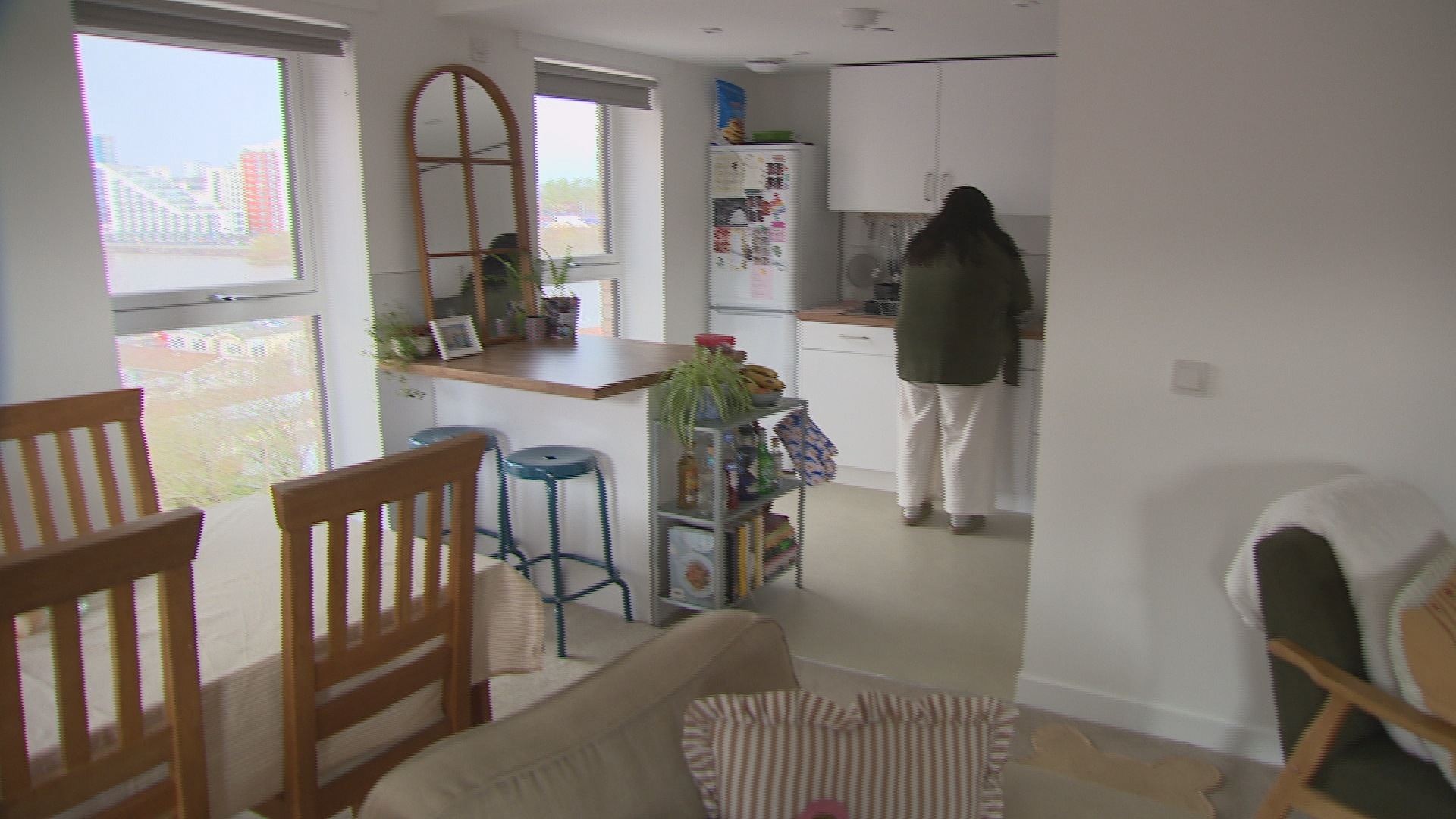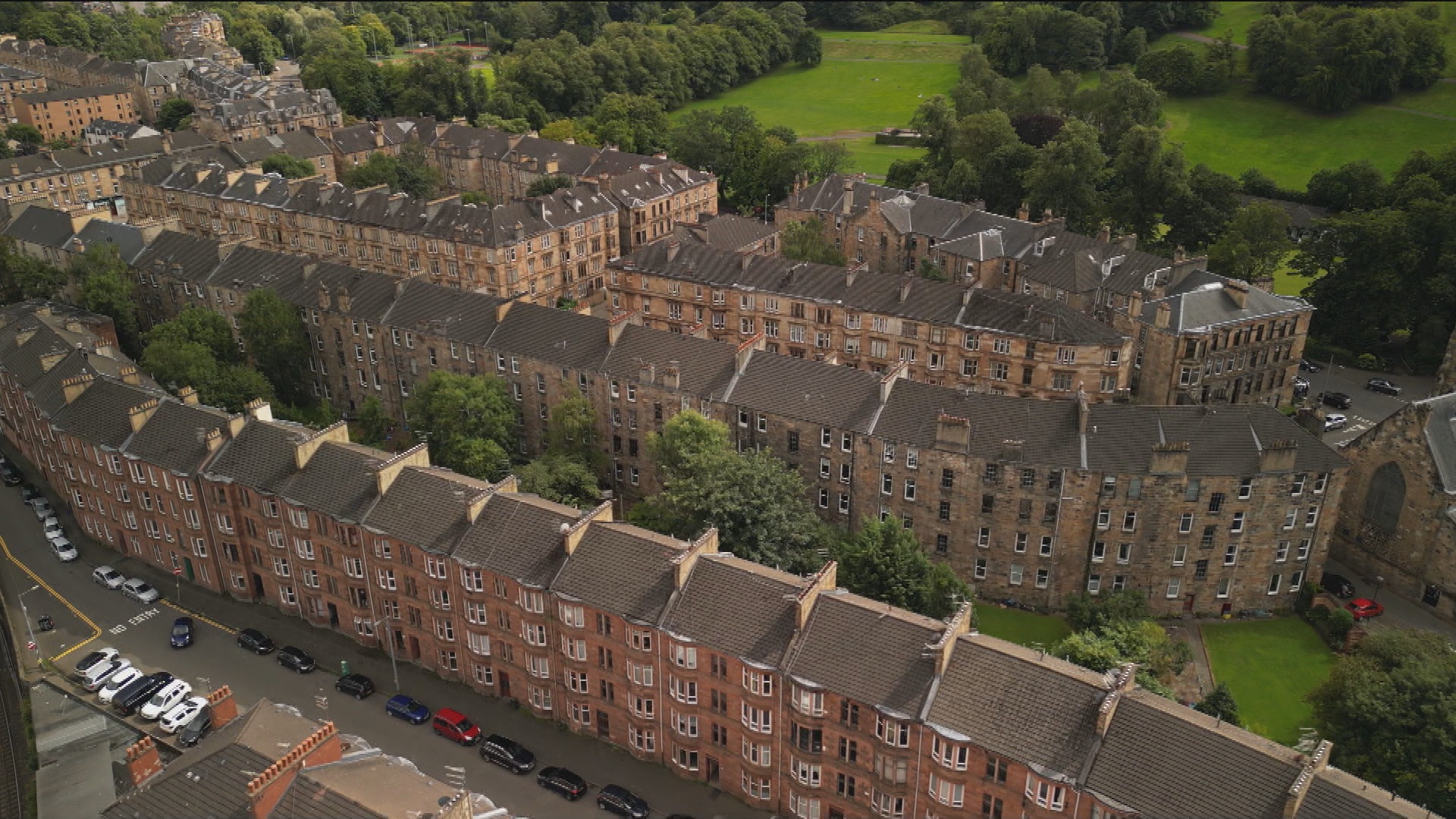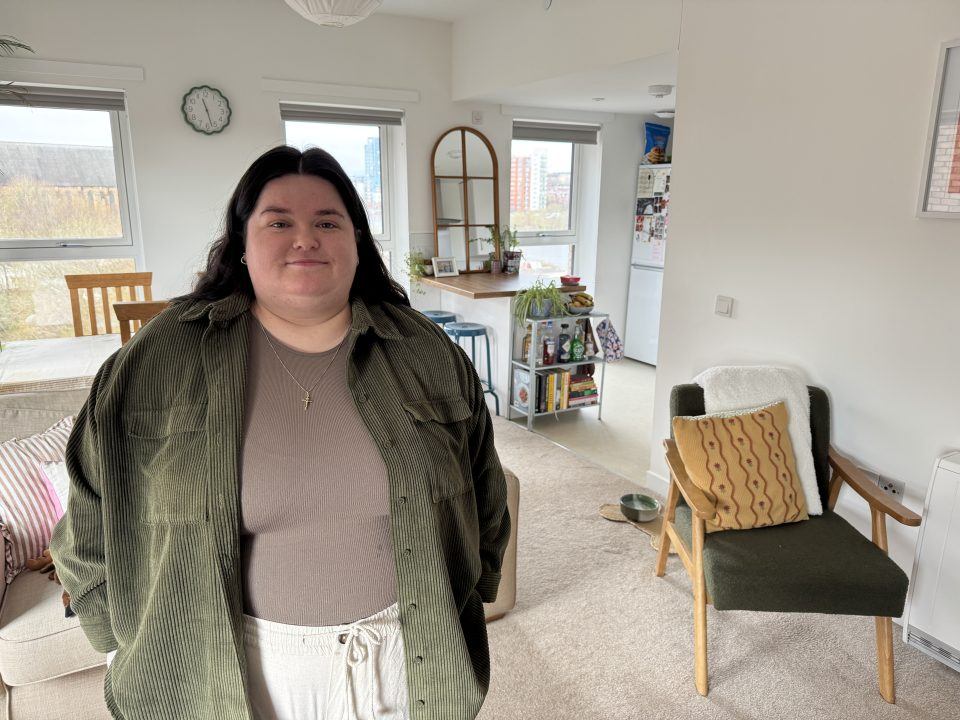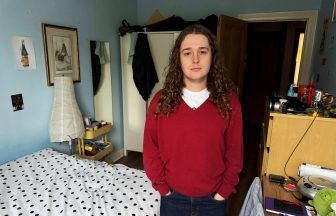Caitlin Clark moved into her mid-market rental home just under a year ago and has already seen her rent go up twice.
She’s now braced for further increases as key Scottish Government legislation to prevent rents from rising more than 12% ends on Monday.
Due to building delays, Caitlin’s block of flats wasn’t ready until after the change of the financial year – pushing her rent up before she had even moved in.
She told STV News: “Our rent went from £638 to £847. At that point, me and my partner had been saving for this flat, had a storage unit for all our furniture, and we were all of two months from moving in.
“We had to cut our losses, suck it up and said, ‘it’ll just be a bit extra every month’ as we had our heart set on this place.”
Mid-market rental homes are supposed to be affordable housing options for households with low to moderate incomes.
 STV News
STV NewsThey have lower rent than private market rates but are higher than social housing, typically provided by housing associations or councils.
But Caitlin’s just been told from April 1 she can expect another increase of £90 to her rent, bringing it to £937 a month. She says that will leave her ‘very, very short’ financially.
Caitlin and her partner’s financial situation was assessed before they took on their flat.
“When I moved into this flat, I had to meet a specific affordability criteria,” she told STV News. “Now we are in these flats, it doesn’t seem that really matters.
“Rent was supposed to take up to 30% of our income – maximum. It’s now going to dominate our salaries every month.”
“The housing association have been given money form the Scottish Government to build these properties. We moved in under the premise of this being mid-market, affordable living, obviously it’s a gorgeous flat and we are so happy to live here but at what cost?”
Temporary rent cap measures end on Monday
From Monday, temporary rent cap measures introduced during the cost-of-living crisis will end.
Under the previous legislation, if a tenant challenged their increase via Rent Service Scotland’s tribunal service, the maximum their rent could be increased was by 12%.
Now, any rent increase notices issued will no longer be subject to the temporary controls.
This means that if a tenant challenges their rent increase, it can be set at the open market rental value, which could be higher than the increase the landlord initially proposed.
The Scottish Government plans to introduce more permanent rent controls as part of the Housing Bill which is currently going through Holyrood.
 STV News
STV NewsIt could see bigger towns and cities, like Glasgow and Edinburgh, implementing rent control zones where local authorities dictate the rental values of properties.
This is unlikely to be implemented before 2027. It’s caused huge concerns that rents will now skyrocket.
Ruth Gilbert from Living Rent told STV News: “The temporary rent cap helped tenants stay in their homes and protected some from eviction. Now, tenants are going to be hit with sky high rent increases. We know before these temporary measures were brought in that that was happening.
We need to see this cap extended. We need to ask why landlords are not being regulated as businesses, why they’re not being prevented from doing these massive rent hikes we are seeing.”
Within the last five years, during the time of the legislation, there have been spikes in inflation, driving the cost of property repairs to rental flats.
Some landlords have seen their mortgages go up as interest rates have changed meaning some were left without the means to offset this with rent increases.
John Blackwood from the Scottish Association of Landlords said: “We are glad to see the end of the temporary rent cap legislation and the restrictive measures it imposed on our sector.
“Since temporary rent caps were introduced, many landlords have chosen to sell up and institutional investors no longer see Scotland as a place to invest.
Scotland’s private rented sector provides high quality, flexible homes to people who need them and abandonment of this foolish and short-sighted measure will allow us to do that more effectively.
“In addressing Scotland’s housing emergency, it is essential that we encourage landlords to invest in providing much needed homes to rent.”
Exclusive figures shared with STV News last week showed renters are not turning to the Scottish Government’s Rent Adjudication system for help.
Data from Living Rent found average rents have gone up by 9%, with landlords looking to increase the monthly bill by an average of £154 a month.
For tenants who challenged their rent hikes via the adjudication process, they had a £71 increase. Half of tenants said they would have to move out if their rents went up this year.
Housing minister Paul McLennan said: “From 1 April, protections continue to be in place against rent increases above market rent for most private tenants and I would encourage tenants to make use of their right to a review of a rent increase.
“We know that there is a need for longer term action on rents to ensure a fairer system for tenants – that is why we are taking forward measures in the Housing Bill to support the introduction of longer-term rent control where this is needed.”
Follow STV News on WhatsApp
Scan the QR code on your mobile device for all the latest news from around the country




























